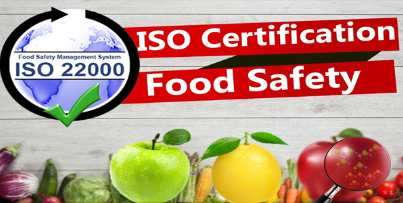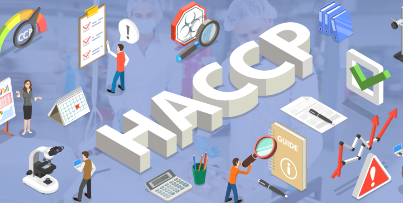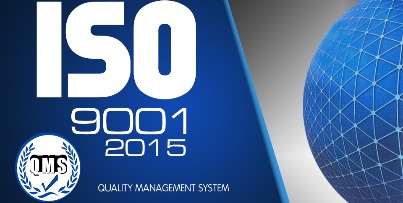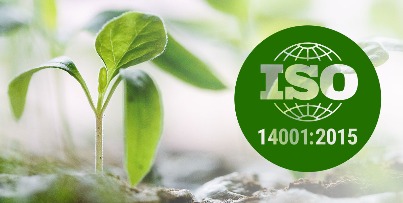
How ISO Certification helpful for Food & Food Products?
The food and food product businesses have become extremely diverse in recent years. And, because the demand for hygienic food has increased in recent years, it is critical for every company to meet its customers' expectations. ISO Certifications assist these businesses in establishing a well-managed food supply chain. Food safety challenges and risks can be assessed, identified, and controlled with the support of ISO certifications. Regardless of their size or quality, all food manufacturers or suppliers have a responsibility to manage the quality of their products. ISO certification is the ideal option for them in this regard, as it enables your company to provide healthy and safe meals to your clients. ISO 22000 Certification is an internationally recognised standard that will help your company maintain generally accepted food safety standards. This standard also contains fundamental concepts such as hazard analysis and important control points (HACCP).
Why do the Food & Food Products need ISO Certification?
The food industry is a global network of enterprises that supply a wide range of food products to the majority of the world's population. In fact, the food business is one of the largest and most important industries in the country's economy. As a result, these industries have high expectations for delivering high-quality food goods and services. Only a globally recognised trademark can guarantee quality management in these businesses. An ISO trademark assures customers that the food industry's services are compliant with internationally recognised ISO standards. Food-based industries can use ISO Certifications to demonstrate their quality and efficiency in meeting the needed standard and meeting the needs of their clients. or food consumers.
Every level of the food industry's services demonstrates the critical necessity for ISO Certifications.
In this context, the following points are highlighted:
- You can supply higher-quality food items or services with the support of ISO 22000 certifications.
- ISO accreditation for the food business optimises resource usage, allowing your company to make more money.
- ISO certifications have a great deal of potential to boost economic growth.
Which standards or ISO certificates are required for the Food & Food Products?
The International Organization for Standardization (ISO) develops standards that aid in the implementation of systematised management systems for the delivery of quality assured products and services, as well as enabling compliance with the relevant standard.
ISO 9001, ISO 14001, and ISO 45001 are the most popular ISO standards for all types of food industries. However, ISO 22000 certification is the most essential and required ISO standard for the food industry.
Let's have a look at these ISO standards in more detail:
ISO 9001 Standard
ISO 9001 is a global standard that establishes a framework for establishing Quality Management Systems (QMS) in businesses. As a result, ISO 9001 assures that the quality of your products or services fulfils client expectations, which is extremely advantageous to the prosperity of your country.
ISO 14001 Standard
By providing the basis for the construction of Environmental Management Systems, the internationally renowned ISO 14001 standard assists you in enhancing your contact with the environment (EMS). It also aids you in resource management and waste reduction in order to make your activities more environmentally friendly.

ISO 45001 Standard
The global standard ISO 45001 provides a framework for building an occupational health and safety management system (OHSMS) in your company. This protects both your employees and your visitors from work-related injuries.

ISO 22000 Standard
The International Organization for Standardization (ISO) produces the ISO 22000 standard, which assists enterprises in the food supply chain in establishing and implementing a Food Safety Management System. To assure the quality and safety of food at all levels, ISO 22000 combines the quality management element of ISO 9001 with the safety management component of HACCP. This standard also aids your food chain's identification of food-related risks and the development of corrective steps to prevent or minimise them.

Hazard Analysis Critical Control Points (HACCP)
Hazard Analysis Critical Control Points (HACCP) is a systematised strategy that strives to offer the framework for monitoring the entire food chain, from harvest to use or consumption, in order to reduce the risk of foodborne infections. Essentially, the system is designed to identify and control all potential risks or problems prior to their occurrence.
Benefits of ISO certification for Food & Food Products Industry
ISO Certifications, which are required globally, are critical to growing your food chain business. ISO standards for these businesses are extremely advantageous since they can satisfy the needs and desires of customers, allowing the company to maximise revenues. ISO certifications can assist your company in improving its food-based business's position in the global food supply chain.
The following are some of the advantages of ISO certification for the food industry:
- ISO certification assists an organisation in maintaining environmental, health, and safety standards as well as reducing food-related hazards and environmental concerns.
- ISO accreditation for food chain businesses helps to lay the groundwork for effective and efficient product and service delivery.
- The ISO standard for the food industry is extremely beneficial to your company since it examines and identifies all of the hazards associated with your food development processes and provides a solution to mitigate them.
- Foodborne disease rates are reduced when ISO certification is obtained.
- ISO Certifications can assist you boost your company's earnings.
ISO Certification process for Food & Food Products
- Application & contract
- Audit team Assignment
- Document view
- Certification Audit Independent review
- Notification of Certification
- Surveillance audit
- Re-Assessment
The certification process goes further. click here to view the next steps to ISO certification Process








